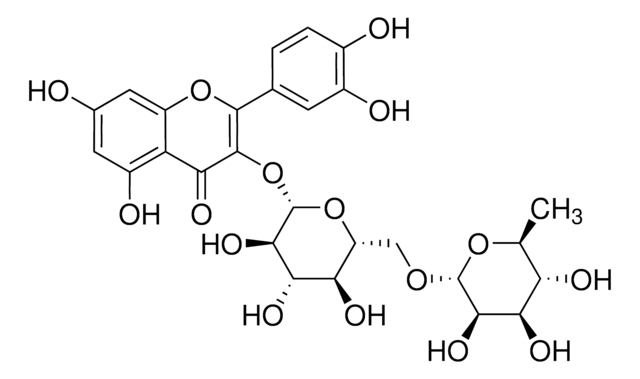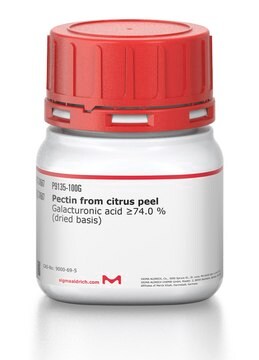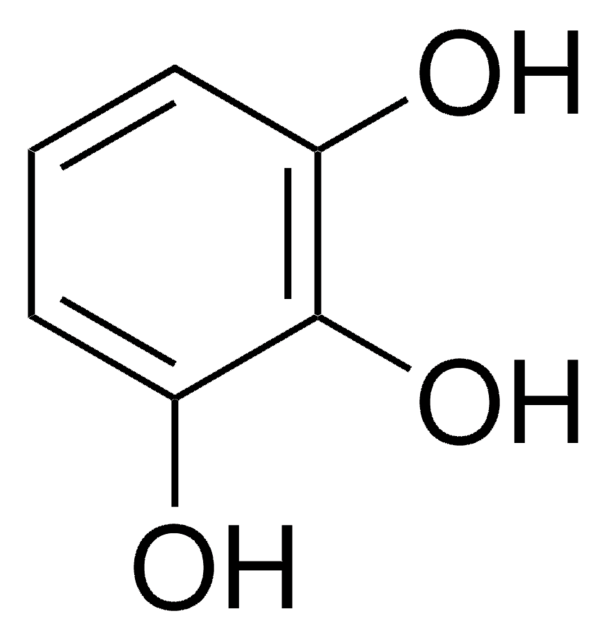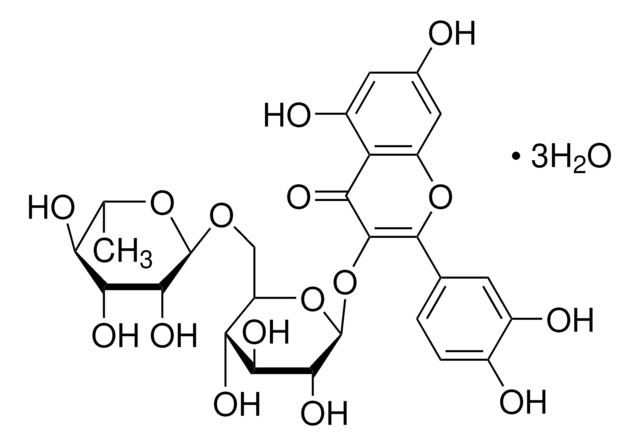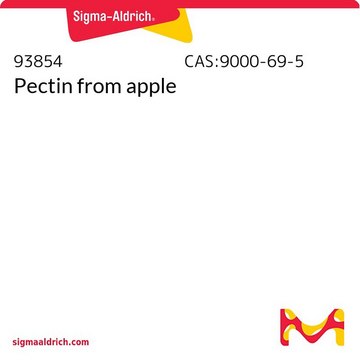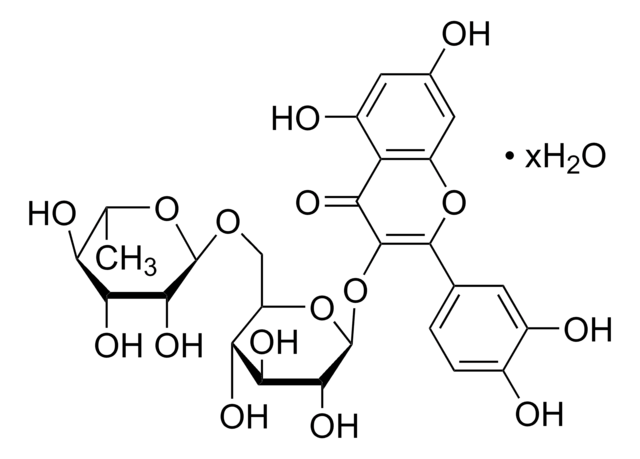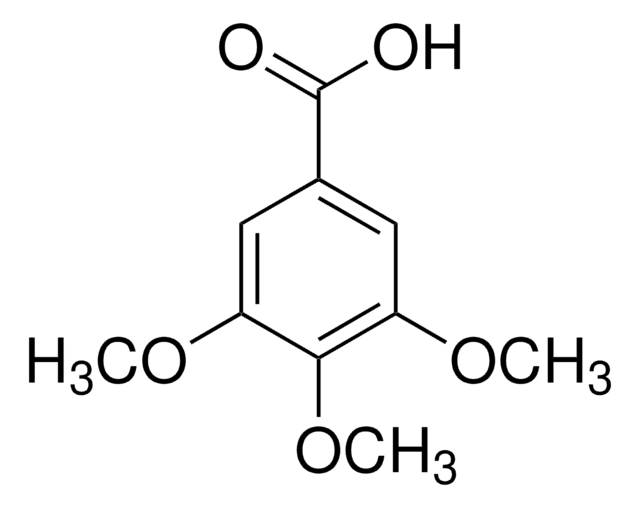V900014
Pyrogallol
Vetec™, reagent grade
Synonym(s):
1,2,3-Trihydroxybenzene, 2,3-Dihydroxyphenol, Pyrogallic acid
About This Item
Recommended Products
grade
reagent grade
vapor density
4.4 (vs air)
vapor pressure
10 mmHg ( 167.7 °C)
product line
Vetec™
form
solid
bp
309 °C (lit.)
mp
133-134 °C (lit.)
SMILES string
Oc1cccc(O)c1O
InChI
1S/C6H6O3/c7-4-2-1-3-5(8)6(4)9/h1-3,7-9H
InChI key
WQGWDDDVZFFDIG-UHFFFAOYSA-N
Looking for similar products? Visit Product Comparison Guide
Legal Information
Signal Word
Warning
Hazard Statements
Precautionary Statements
Hazard Classifications
Acute Tox. 4 Dermal - Acute Tox. 4 Inhalation - Acute Tox. 4 Oral - Aquatic Chronic 3 - Muta. 2
Storage Class Code
11 - Combustible Solids
WGK
WGK 2
Flash Point(F)
Not applicable
Flash Point(C)
Not applicable
Certificates of Analysis (COA)
Search for Certificates of Analysis (COA) by entering the products Lot/Batch Number. Lot and Batch Numbers can be found on a product’s label following the words ‘Lot’ or ‘Batch’.
Already Own This Product?
Find documentation for the products that you have recently purchased in the Document Library.
Our team of scientists has experience in all areas of research including Life Science, Material Science, Chemical Synthesis, Chromatography, Analytical and many others.
Contact Technical Service